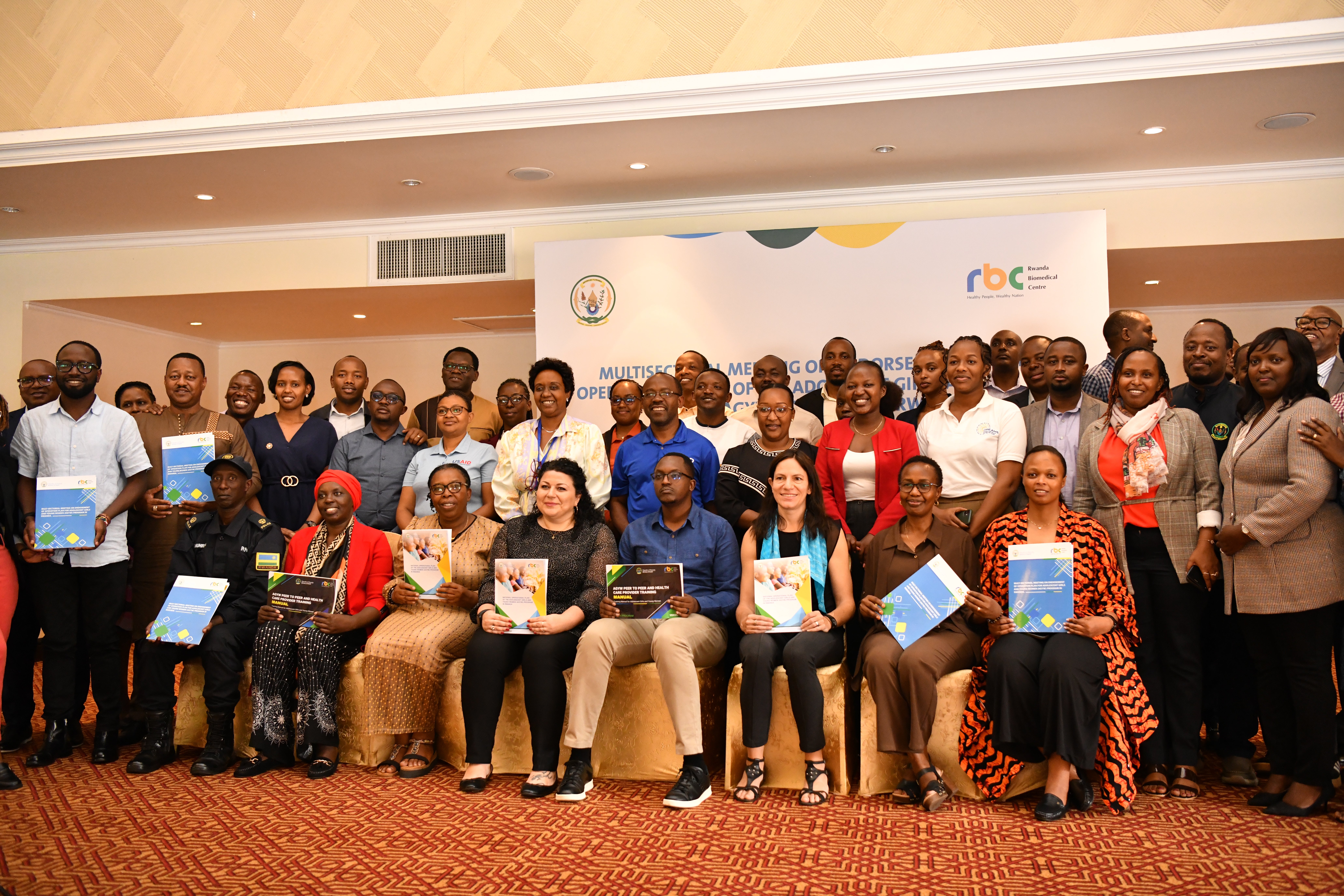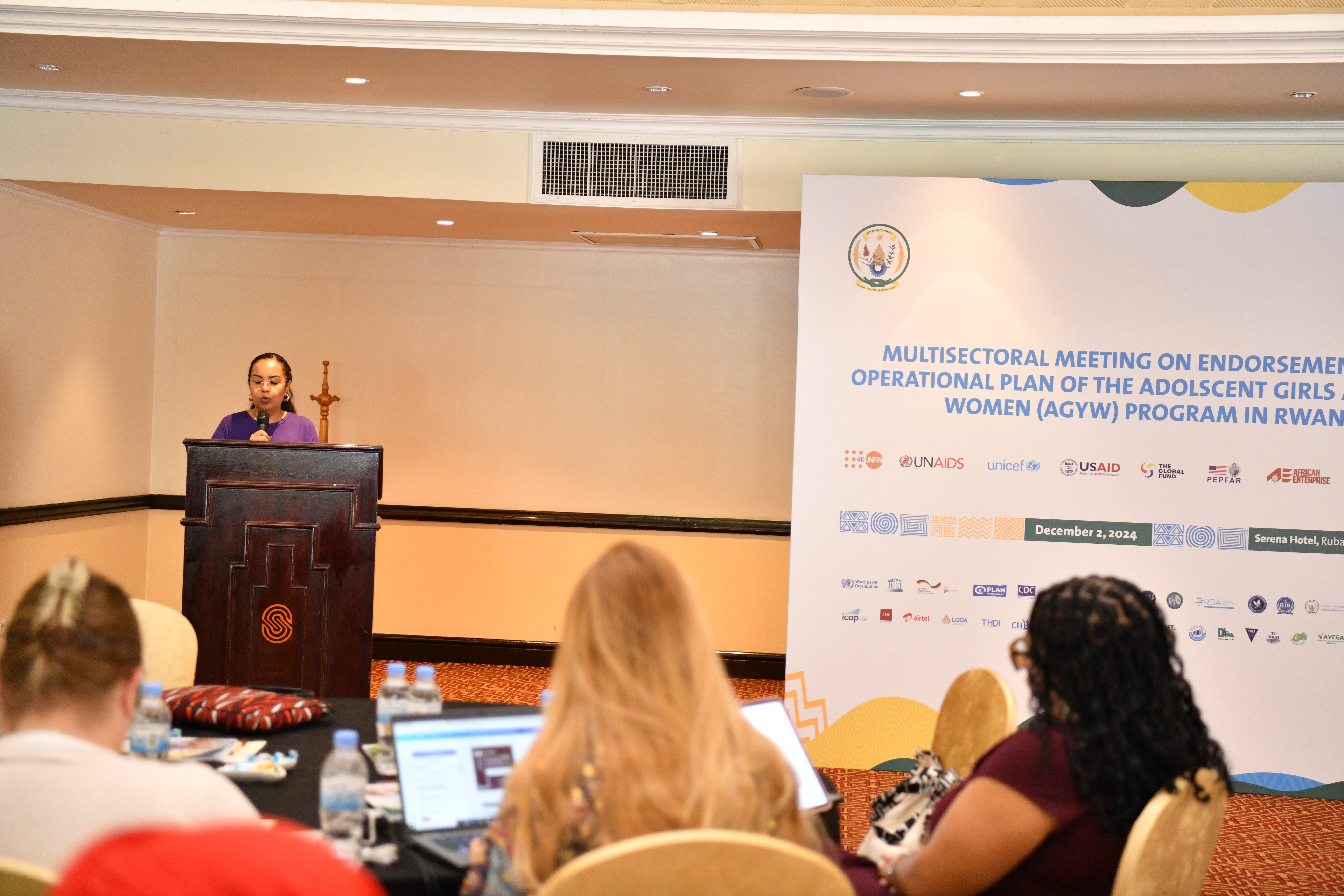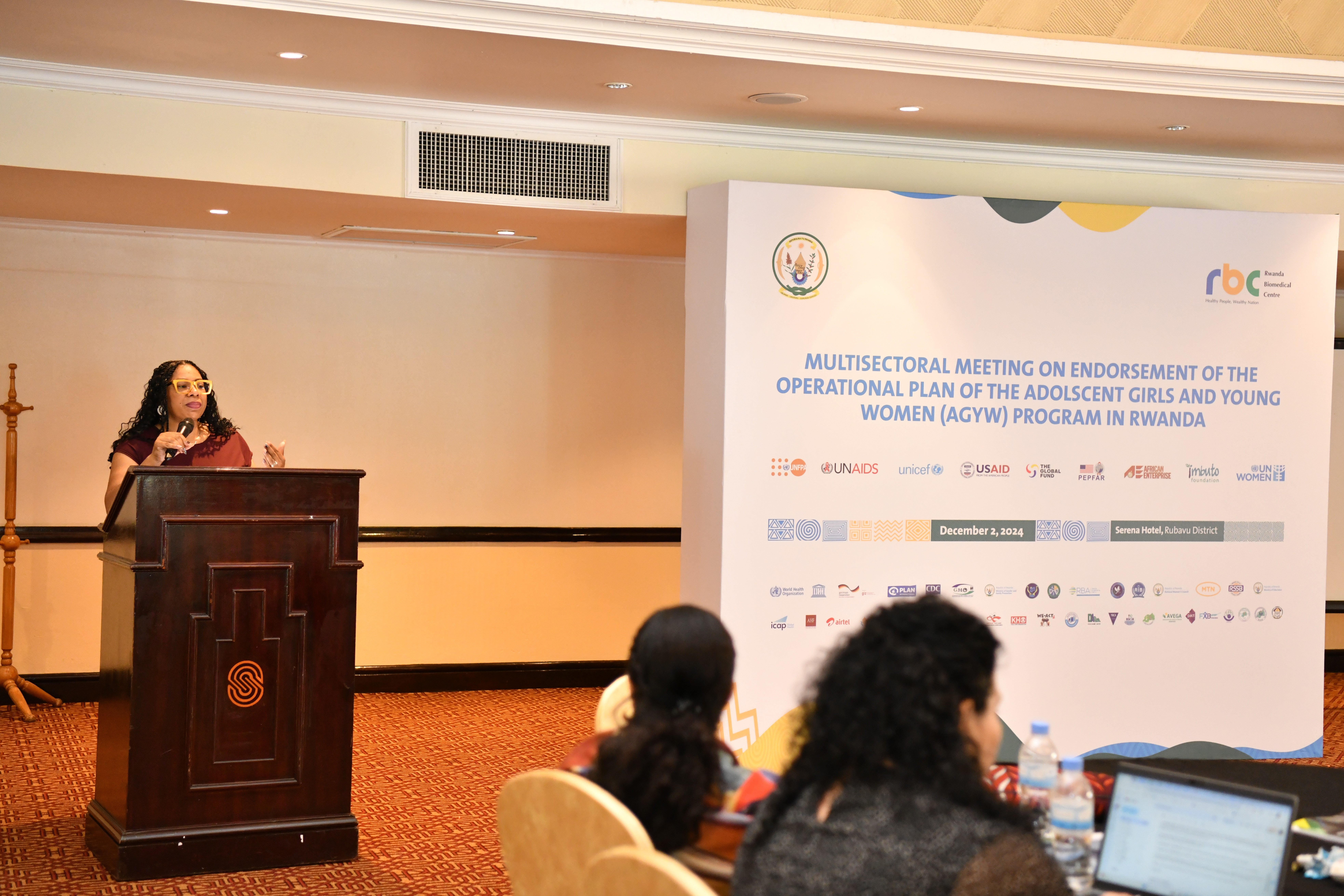Rwanda Endorses and Launches National Operational Plan to Empower Adolescent Girls and Young Women
Date:

Rwanda has taken a significant step in the combat against HIV and gender-based violence (GBV) by endorsing and initiating the National Operational Plan for the Adolescent Girls and Young Women (AGYW) Program focused on HIV Prevention, Gender-based Violence (GBV) and Sexual Reproductive Health (SRH). This initiative was co-organized by the Rwanda Biomedical Centre (RBC), UN Women, and UNFPA. A stakeholders' meeting held on December 1, 2024, at the Serena Hotel in Rubavu District convened senior leaders from the UN Joint Team on AIDS, various Rwandan governmental bodies, including the Ministry of Gender and Family Promotion, the Gender Monitoring Office, the Local Administrative Entities Development Agency, the Rwanda National Police, the Rwanda Investigation Bureau, as well as key partners such as USAID, the Global Fund, PEPFAR, UNAIDS, UNFPA, UNICEF, WHO, non-governmental organizations (NGOs), and Civil Society Organizations.
Together, they reaffirmed their collective commitment to eradicating the HIV pandemic in Rwanda. While Rwanda's HIV prevalence has stabilized at 2.7% among adults aged 15 to 49, young women are disproportionately affected. For instance, girls aged 20 to 24 are three times more likely to be living with HIV compared to their male counterparts, highlighting the urgent necessity for targeted interventions. The AGYW program addresses the enduring vulnerabilities faced by adolescent girls and young women aged 10 to 24, focusing on HIV prevention, sexual and reproductive health (SRH), and protection from GBV.
Developed by RBC in collaboration with the Ministry of Health, UNFPA, UN Women, and UNAIDS, the operational plan integrates comprehensive health and social strategies, such as mental health support and economic empowerment, alongside other measures that address systemic and societal barriers contributing to the vulnerabilities of AGYW. The key objectives of the multisectoral meeting included presenting the operational plan to ensure coordinated implementation, guaranteeing sustainability through strategic resource allocation, and aligning monitoring and evaluation mechanisms to foster accountability and measurable progress. Stakeholders identified challenges such as funding gaps, cultural resistance, and the need for policy alignment, pledging to address these collectively. The operational plan emphasizes three core strategies: HIV prevention, which involves the provision of pre-and post-exposure prophylaxis, comprehensive sexual health education, and awareness campaigns targeting AGYW and their communities; sexual and reproductive health (SRH), which focuses on improving access to affordable, youth-friendly SRH services to reduce teenage pregnancies and sexually transmitted infections (STIs); and gender-based violence (GBV) prevention, aimed at strengthening legal and policy frameworks to hold perpetrators accountable while integrating GBV prevention into community health programs.
To ensure sustainability, the program advocates for cross-sector partnerships and diversified funding sources, aligning with Rwanda’s National Strategic Plan on HIV/AIDS (2024–2027) and the global objectives to eradicate the AIDS epidemic by 2030. The operational plan is a roadmap for incorporating AGYW-focused interventions into Rwanda's national development strategies, including health, education, and gender equality policies. Elevating the voices of AGYW remains a priority, ensuring that their needs and perspectives guide all initiatives. Participants pledged their support and outlined commitments to facilitate effective program implementation. Speaking on behalf of the ONE UN Rwanda Country Team during the meeting, the UNAIDS Country Director, Mrs. Hind Hassan Abdalgalil, emphasized a collective commitment. "We are here for the girls in Rwanda. We are here to make a difference in their lives, to ensure that every young woman has the opportunity to live a healthy life and thrive. Most importantly, we are here collectively to hold ourselves and each other accountable and to amplify our shared commitment to the well-being of our girls," stated Mrs. Abdalgalil.

The meeting resulted in the formal endorsement of the AGYW operational plan and the establishment of a robust monitoring system leveraging tools like District Health Information Systems. In her remarks, Ms. Keisha L. Effiom, USAID Mission Director for Rwanda and Burundi, highlighted a forward-looking approach to building lasting solutions through collaboration, innovation, and accountability. She underscored the importance of co-financing and leveraging partnerships to sustain critical interventions. She emphasized the need to think ahead, stating, "We must explore innovative mechanisms to ensure the sustainability of these efforts, including greater alignment with national systems, diversified funding streams, and transparent accountability frameworks."
Dr. Galician N, RWIBASIRA, on behalf of the HIV Division/Rwanda Biomedical Center, highlighted that adolescent girls and young women (AGYW) hold great potential to shape the future, yet they face serious health risks, particularly regarding HIV and sexual and reproductive health. Key challenges include gender-based violence, harmful cultural practices, limited education, and inadequate access to youth-oriented services. These barriers hinder AGYW globally from achieving its full potential. The AGYW Operation Plan and Monitoring and Evaluation framework provides a transformative vision to address these challenges. It advocates for a collaborative, multi-sectoral approach, emphasizing innovative, evidence-based interventions to empower AGYW.

A Call to Action
By addressing the triple threats of HIV, teenage pregnancy, and GBV, Rwanda is setting a strong example for tackling systemic issues and fostering a healthier, more equitable future for its youth. The successful launch of the AGYW operational plan reaffirms Rwanda’s commitment to empowering its youth, particularly adolescent girls and young women. As emphasized by the Minister of Health, Dr. Sabin Nsanzimana, during the national World AIDS Day commemoration, ending HIV is a shared responsibility requiring sustained, multisectoral collaboration.